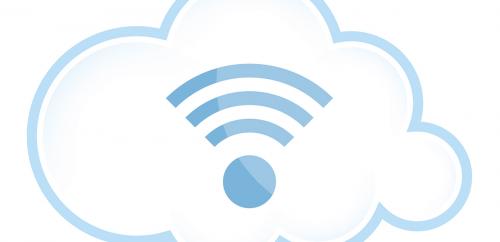Hardly 15 years old, Wi-Fi technology has become the fuel for the hundreds of millions of connected devices we rely on every day. It’s allowed us to push the limits of wireless technology and innovate in unimagined ways.
In fact, a new economic study released today finds that unlicensed spectrum generated $222 billion in value to the U.S. economy in 2013 and contributed $6.7 billion to U.S. GDP. Far from its days of being labeled a user of junk spectrum, Wi-Fi has gone from being a technology stepchild to a technology superstar.
Today, more data is carried over Wi-Fi than any other platform – more than cellular and wireline combined. But Wi-Fi and the unlicensed spectrum it relies on can’t keep up with demand. Because Wi-Fi relies on only a small amount of usable unlicensed spectrum, congestion is increasing. That limits the number of devices that can work on the same hotspot and how much data each device can receive. But there is a solution – allowing more sharing of spectrum to keep pace with our rapidly growing collection of data hungry devices.
Opening up more spectrum for Wi-Fi use would also jump-start the next generation of Wi-Fi technology, which could make gigabit speeds possible on Wi-Fi networks for the first time. For Wi-Fi to keep marching forward, it desperately needs access to more spectrum. That is why NCTA is joining a new coalition called WiFiForward made up of companies, organizations and public sector institutions calling on policymakers to solve this Wi-Fi spectrum crunch. Other members of the coalition include Google, Comcast, Microsoft, the American Libraries Association, the International Venue Managers Association, the Consumer Electronics Association, Arris and others.
The benefits of freeing up unlicensed spectrum for Wi-Fi have already been proven. But lightning-fast next generation Wi-Fi will spur will even more innovation and unleash a torrent of new technologies in fields as diverse as communications, entertainment, health care, agriculture, energy, transportation and the Internet of Things. As a nation, we have the opportunity to be global leaders in Wi-Fi speed, accessibility and technology. But we must act now to free up the unlicensed spectrum that’s needed to make that happen.
